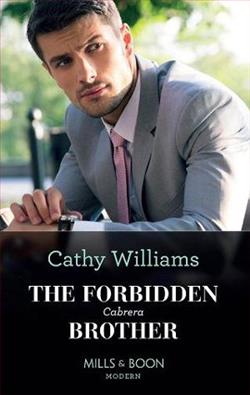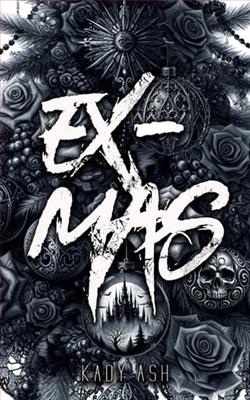Page 270 of Never
The aide said: ‘Ten minutes. Multiple targets, all in North Korea.’
Assuming it was not a lie, how would the men in the room deal with this? The Americans had now sunk an aircraft carrier, killing two thousand five hundred Chinese sailors, and they were about to turn half of North Korea, China’s only military ally, into a radioactive wasteland. Kai knew that his father and the old Communists could not live with that much humiliation at the hands of their old enemy. Their pride in their country and themselves would not stand it. They would demand a nuclear attack on the US. They knew the consequences but they would want it anyway.
‘Five minutes. The targets are all in the north and east of Korea, avoiding Pyongyang and the rest of the territory occupied by the South Korean military.’
After this, Kai and Kong Zhao would find it difficult to restrain General Huang and his allies, including Chang Jianjun. But President Chen would have the last word, and Kai felt he would, in the end, lean to moderation. Probably.
‘One minute.’
Kai stared at a satellite picture of North Korea. He was overwhelmed by a sense of tragedy, knowing he had failed to prevent this.
The radar graphic showed the missiles landing within a space of a few seconds all over the north-east quarter of Korea. By Kai’s calculation there were eleven military bases within that area, and it looked as if President Green had hit every one.
The same picture was even more vivid in the image from the infra-red satellite.
Chang Jianjun stood up. ‘If I may, Mr President, as Chairman of the National Security Commission?’
‘Go ahead.’
‘Our response must be tough, and must do real harm to the US, but it should nevertheless be proportional to the offence. I propose three nuclear attacks on American military bases outside the American heartland: in Alaska, Hawaii and Guam.’
Chen shook his head. ‘One would be enough. One target, one bomb – if we do this at all.’
Kong Zhao said: ‘We have always said we would never be the first to use nuclear weapons.’
Jianjun said: ‘And we will not be the first. If we do as I suggest, we will be the third. The North Korean ultras were the first and the US was second.’
‘Thank you, Chang Jianjun.’ President Chen looked at Kai, clearly wanting to hear arguments against.
Kai found himself in direct public conflict with his father. ‘First, note that American aggression against us, sinking theFujian, did not employ nuclear weapons.’
‘An important point,’ said Chen.
Kai was encouraged. The president was clearly favouring restraint. Perhaps moderation would prevail. He went on: ‘Second, the Americans have used nuclear weapons not against us, or even against our friends in North Korea, but against a rogue group of rebels who are not owed loyalty by the People’s Republic of China. We might even consider that President Green has done a favour to us and the world by getting rid of a dangerous maverick group of usurpers who have almost started a nuclear war.’
An aide whispered in the ear of Foreign Minister Wu Bai. Wu looked angry. ‘The Chief Executive of Hong Kong has turned on us,’ he said gravely. ‘He formally requests the Chinese military to evacuate its garrison in Hong Kong immediately, all twelve thousand personnel, to ensure that Hong Kong does not become a nuclear target.’ Wu paused. ‘He has made this request publicly.’
Huang was red-faced. ‘The traitor!’
President Chen said furiously: ‘I thought we had that under control! We appointed that Chief Executive because he was loyal to the Party.’
You installed a puppet government, Kai thought privately, and you never expected the puppet to bite you.
‘You see?’ said Huang. ‘First Taiwan becomes defiant, then Hong Kong. I keep telling you, it’s fatal to appear weak!’
Kai’s boss, Fu Chuyu, spoke. ‘I’m sorry to follow bad news with worse,’ he said. ‘But I have a message from the Vice-Minister for Homeland Intelligence that you ought to hear. It seems there is trouble in Xinjiang.’ This vast desert province in the west of China had a majority Muslim population and a small independence movement. ‘Separatists have seized control of Diwopu Airport and Communist Party headquarters in Urumqi, the capital. They have declared that Xinjiang is now the independent country of East Turkestan and will remain neutral in the present nuclear conflict.’
Kai reckoned that rebellion would probably last half an hour. The army in Xinjiang would come down on the separatists like a wolf pack on a flock of sheep. But at a time like this even a comic-opera military coup was a blow to China’s pride.
It was unnerving, as General Huang immediately demonstrated. ‘This is reactionary imperialism, obviously,’ he fumed. ‘Look at what has happened in the last two months. North Korea, Sudan, the South China Sea, the Diaoyu Islands, Taiwan, and now Hong Kong and Xinjiang. It’s the death of a thousand cuts, a carefully planned campaign to deprive China of territory bit by bit, and the Americans are behind it every step of the way! We have to stop it now. We have to make the Americans pay the price of their aggression – otherwise they will not stop until China is reduced to the kind of servile colony it was a century ago. A limited nuclear attack is the only possible course for us now.’
President Chen said: ‘We’re not yet at that point of desperation. It may come, I know. But for now we must try less apocalyptic methods.’
Out of the corner of his eye Kai saw a look pass between his father and General Huang. Naturally, he thought, they would be disheartened at losing the argument.
Then Jianjun stood up, muttered something about a call of nature, and left the room. That was surprising. Kai knew that his father did not suffer from the bladder problems that were common among older men. Jianjun never admitted to health issues but Kai’s mother kept him informed. However, Jianjun must have had a strong reason to leave the room in the middle of such a vital discussion. Was he ill? The old man was a dinosaur but Kai loved him.
Chen said: ‘General Huang, please prepare for the People’s Liberation Army to enter Hong Kong in force and take control of the government there.’















